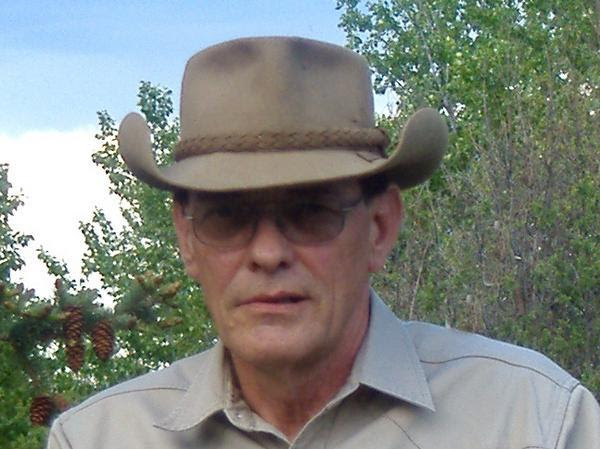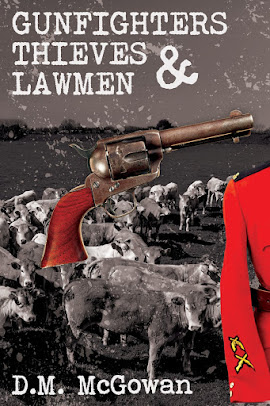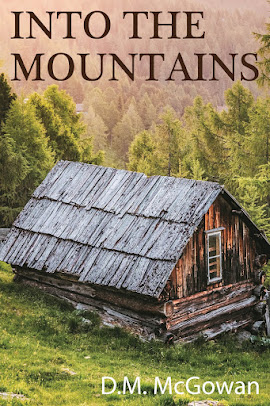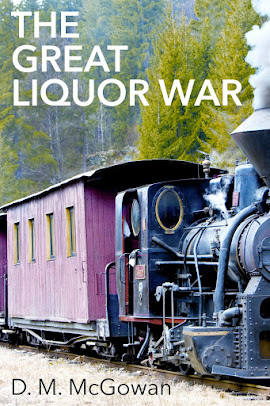Recently I watched an episode of CTV’s W5 which followed the history of a firearm with a highly questionable entry into public ownership and a disgustingly deadly end to its history. It demonstrated some great research and editing, had a good story line and was presented in a logical, linear manner.
My problem with the show is what was the point? I think I know the point they were trying to make, but if my guess is right, their point was not very well defined. I also don’t think they were heading toward the proper, educational point they should have been trying to achieve.
Let me first re-cap the story.
A young man in Georgia is selling illegal drugs and decides he should have a hand gun for his protection. He goes to an infamous dealer (in Atlanta, I believe) and purchases a well engineered, and well built semi-automatic pistol chambered for .45 ACP. This particular weapon is designed for concealed carry and the calibre for serious stopping power.
(.45 Automatic Colt Pistol – this is only the cartridge designation; the weapon was not made by Colt)
A friend of this young man convinces him that he should NOT carry the gun; not because he doesn’t know what he’s doing but because of the legal implications of being caught with illegal drugs and a firearm for which he doesn’t have permit to carry.
The young man’s drug centre is hit by another drug distributor and he is shot and killed. His firearm, which was at his home at the time of his death, is sold by his mother for a few hundred dollars. It is transported to the North East and sold by another gun dealer (with a questionable background). It eventually winds up in Montreal where it winds up in the night stand of a man who has a 4 year old son. The son and his playmate remove the weapon from the night stand; the playmate pulls the trigger and shoots the boy.
With this particular calibre cartridge it would not have mattered where a small boy is hit, the result would have been the same. In this case the boy was hit in the face.
So what was the point of this documentary? Too many firearms which are too easily accessible? Gun dealers without a sense of responsibility?
If one or all of these was their intention they didn’t bring any of these points home. Yes, firearms are easily accessible even under the most draconian firearms control legislation. This should be obvious since there are many jurisdictions with such laws (Canada for example) under which there are often more illegally owned firearms than legally owned.
Yes there are a few gun dealers who fail their responsibilities to society. As it happens the two dealers in this documentary were conforming (just) to the laws within their particular states. Any state where anyone can walk in to a store and walk out with a firearm while still knowing nothing about how to handle it needs to upgrade their legislation. Any state where a drug dealer can buy a ‘legal’ weapon in any length of time needs to upgrade its legislation.
As it happens, both dealers are no longer in business under their original business names.
The pertinent points that W5 missed?
1. Anyone who owns a firearm should not be able to take possession until they have been properly trained. (Twenty hours at a police academy does not, by itself, constitute proper training.)
2. Those that have been convicted of a capital offence or have no known source of income should not be allowed access to firearms except under extraordinary circumstances.
3. Firearms are stored in a secure location which does not include a bed-side table.
4. Firearms that are loaded are for use, not storage.
5. Firearms that are stored are not only double-checked to be empty but are left with the safety engaged. In the instance listed above, the firearm should also have had a trigger lock installed.
And, in addition, the forgoing (including the list) does not constitute any part of a firearms training program.
Tuesday, September 29, 2009
Sunday, September 20, 2009
Great Books Great Entertainment
This time I’m talking about Passchendaell, Divine Justice, The Good Old Boys.
The Good Old Boys by Elmer Kelton
I originally read this at some time around its release which was in 1978 although I had forgotten almost everything about it. Of course, anything written by Mr. Kelton is usually worth at least two reads even if you haven’t forgotten the story. The Good Old Boys is no exception. A great look at trying to make a go of farming in the US South West or anywhere else, for that matter. The problems are exacerbated by the timing, the first years of the 20th century and the financial depression of the era. It’s also a good look at the stuffed shirts (or in this case a pompous fool and a miser) who think they run the world but are actually just getting in the way of those who do.
The protagonist here is Hewey Calloway. Apparently there are other Calloway books and I’m looking forward to finding them.
It’s a very sad thing that Elmer Kelton will never add to his great body of works. I will miss him greatly. But he leaves a great legacy in some great stories.
Divine Justice by David Baldacci
This is another in the great ‘Camel Club’ series. I’ve read most of them and enjoyed all. Actually, I hope I missed at least one since they are so entertaining and Divine Justice is the last. No matter, they are so entertaining and my memory is so short I can read them all again in a few years.
The Camel Club is lead by an older gentleman who calls himself Oliver Stone. In an earlier life (and an earlier series by Mr. Baldacci) he was John Carr, ex Special Forces and member of an elite killing squad. The only way he could retire was by ‘dieing’ and re-emerging as Oliver Stone.
The other Camel Club members are a diverse group with a variety of backgrounds and very diverse characters.
Great suspense, great conspiracy and a great read.
Passchendaell by Paul Gross (originally)
This is the best story I’ve read in a very long time. The only problem I have with it is that it is “Based on the screenplay by Paul Gross.” Does that mean that Paul Gross also wrote the novel? Does it mean that Mr. Gross was too busy to write the novel (which I can certainly believe and understand given the body of work he has done in the past few years) and had someone else write it? If the latter is the case, who did the writing?
This is not really important but a small thing that bothers me.
This is a great story about WWI and the people … the farmers, cowboys, loggers, fishermen, home makers, sons and daughters … from all over Canada who fought it.
A great movie and a great read.
Mr. Gross has received several awards for his acting and writing. He deserves several more for Passchendaell.
The Good Old Boys by Elmer Kelton
I originally read this at some time around its release which was in 1978 although I had forgotten almost everything about it. Of course, anything written by Mr. Kelton is usually worth at least two reads even if you haven’t forgotten the story. The Good Old Boys is no exception. A great look at trying to make a go of farming in the US South West or anywhere else, for that matter. The problems are exacerbated by the timing, the first years of the 20th century and the financial depression of the era. It’s also a good look at the stuffed shirts (or in this case a pompous fool and a miser) who think they run the world but are actually just getting in the way of those who do.
The protagonist here is Hewey Calloway. Apparently there are other Calloway books and I’m looking forward to finding them.
It’s a very sad thing that Elmer Kelton will never add to his great body of works. I will miss him greatly. But he leaves a great legacy in some great stories.
Divine Justice by David Baldacci
This is another in the great ‘Camel Club’ series. I’ve read most of them and enjoyed all. Actually, I hope I missed at least one since they are so entertaining and Divine Justice is the last. No matter, they are so entertaining and my memory is so short I can read them all again in a few years.
The Camel Club is lead by an older gentleman who calls himself Oliver Stone. In an earlier life (and an earlier series by Mr. Baldacci) he was John Carr, ex Special Forces and member of an elite killing squad. The only way he could retire was by ‘dieing’ and re-emerging as Oliver Stone.
The other Camel Club members are a diverse group with a variety of backgrounds and very diverse characters.
Great suspense, great conspiracy and a great read.
Passchendaell by Paul Gross (originally)
This is the best story I’ve read in a very long time. The only problem I have with it is that it is “Based on the screenplay by Paul Gross.” Does that mean that Paul Gross also wrote the novel? Does it mean that Mr. Gross was too busy to write the novel (which I can certainly believe and understand given the body of work he has done in the past few years) and had someone else write it? If the latter is the case, who did the writing?
This is not really important but a small thing that bothers me.
This is a great story about WWI and the people … the farmers, cowboys, loggers, fishermen, home makers, sons and daughters … from all over Canada who fought it.
A great movie and a great read.
Mr. Gross has received several awards for his acting and writing. He deserves several more for Passchendaell.
Wednesday, September 16, 2009
Great Books, Great Entertainment
The biggest problem with being too busy hauling fuel is that it doesn’t leave enough time to work on my next novel. However I can still squeeze in the reading of a chapter or so of someone else’s writing while I’m unloading in some spots.
I’ve enjoyed some great reading over the past few months. Passchendaell, Divine Justice, The Good Old Boys, Night of Flames, Echo Burning and Telegraph Days.
Telegraph Days by Larry McMurtry
One of McMurtry’s more entertaining efforts, much like his ‘Buffalo Gals’. I’ve found that some of his stories, even though they often contain humour can be very dark. The ‘Lonesome Dove’ series, for example can supply some serious depression. Yes, Telegraph Days has some depressing moments since it’s trying to depict life, after all, but overall it is a very funny, entertaining read. It follows the life of a young woman in the west from 1876 through the turn of the century and includes several historical references. Great read.
Echo Burning by Lee Child
This is the second time I’ve read this member of the ‘Jack Reacher’ series and I enjoyed it as much this time as the first. For those who are not familiar with Reacher he was an ‘Army brat’ who grew up in US military bases all over the world, graduated from West Point and spent 15 years as an army cop. He retired as a major when the end of the cold war changed ‘his’ army in ways he didn’t like. He now travels with a tooth brush and clothes on his back exploring the country he saw little of in his professional life. Echo Burning has him in South Texas experiencing some violent weather, violent bigotry, intrigue, murder and learning a little about horses and children. Great read.
Night of Flames by Douglas W. Jacobson
I can’t remember how I discovered this author or book but I’m sure happy I did. I’ve read countless stories of WWII but very few from the perspective of the Polish. This is an excellent tale of a young couple with a son who are all split up when the Nazis attack their homeland. They each go through their own version of hell then find new paths that go back through that same hell in their attempts to find each other.
If you want be entertained, like historical fiction, enjoy learning something new and want to meet some new (you’ll see them as real) people be sure to get a copy of Night of Flames.
You can visit Mr. Jacobson at http://www.douglaswjacobson.blogspot.com/
Great read.
More about the other three novels in the next post.
I’ve enjoyed some great reading over the past few months. Passchendaell, Divine Justice, The Good Old Boys, Night of Flames, Echo Burning and Telegraph Days.
Telegraph Days by Larry McMurtry
One of McMurtry’s more entertaining efforts, much like his ‘Buffalo Gals’. I’ve found that some of his stories, even though they often contain humour can be very dark. The ‘Lonesome Dove’ series, for example can supply some serious depression. Yes, Telegraph Days has some depressing moments since it’s trying to depict life, after all, but overall it is a very funny, entertaining read. It follows the life of a young woman in the west from 1876 through the turn of the century and includes several historical references. Great read.
Echo Burning by Lee Child
This is the second time I’ve read this member of the ‘Jack Reacher’ series and I enjoyed it as much this time as the first. For those who are not familiar with Reacher he was an ‘Army brat’ who grew up in US military bases all over the world, graduated from West Point and spent 15 years as an army cop. He retired as a major when the end of the cold war changed ‘his’ army in ways he didn’t like. He now travels with a tooth brush and clothes on his back exploring the country he saw little of in his professional life. Echo Burning has him in South Texas experiencing some violent weather, violent bigotry, intrigue, murder and learning a little about horses and children. Great read.
Night of Flames by Douglas W. Jacobson
I can’t remember how I discovered this author or book but I’m sure happy I did. I’ve read countless stories of WWII but very few from the perspective of the Polish. This is an excellent tale of a young couple with a son who are all split up when the Nazis attack their homeland. They each go through their own version of hell then find new paths that go back through that same hell in their attempts to find each other.
If you want be entertained, like historical fiction, enjoy learning something new and want to meet some new (you’ll see them as real) people be sure to get a copy of Night of Flames.
You can visit Mr. Jacobson at http://www.douglaswjacobson.blogspot.com/
Great read.
More about the other three novels in the next post.
Wednesday, September 9, 2009
Homesteader: what does it mean?
I’ve had people stopping by apparently looking for information on Homesteading and leaving disappointed. Apparently they have been lead astray by my novel title ‘Homesteader’. I tried to avoid this by adding the sub-title ‘Looking for Sharon’ but obviously I wasn’t completely successful.
Homesteading today might include a box full of dirt on a fifth floor balcony in New York or a small acreage on the Blue Mountain 80 miles north of Toronto.
My novel, however, is about the acquisition of a comparatively large tract of land in the North West Territories in 1886. This ‘homesteading’ story could have been set in any part of the Western US or Canada since the laws and costs for acquiring land were similar in both jurisdictions. The timing could have been changed to a number of decades. There was still government land available as late as the 1980s in British Columbia although the laws had changed several times over the years. I chose the Calgary area since I had hiked or driven over some of the area depicted and it fit in nicely with the characters I had created in ‘The Great Liquor War’.
Not that I don’t have some familiarity with today’s form of ‘homesteading’. I’ve planted and weeded more than one garden. I’ve raised and sold (or helped butcher) several litters of pigs and milked more than one cow. In addition to some experience with range cattle I’ve also raised a few on my own small acreage.
Yes, you pick up a few hints over the years that might help. For instance, if you find yourself in possession of an old garden plot that is covered in a thick blanket of weeds plant Jerusalem artichokes. Plant them very thick. While you’re waiting for them to grow, surround them with a fence that is pig – proof and install a water system for those pigs. When the artichokes are well on their way, turn a litter of pigs in to the lot. The artichokes will smother out the weeds; the pigs will eat the artichokes (and weeds) as well as doing the initial tilling of your garden now ready for next season.
One of the things I’ve tried was a hay rake of my own creation which worked. With some variation I describe it in my novel ‘Homesteader’. The characters in the novel use it attached to the back of a horse drawn wagon rather than to a tractor.
By the way, Jerusalem artichokes are not artichokes and they are not from Jerusalem. They are members of the sunflower family.
Yes, there is enough material in homesteading now and homesteading then to make a book on either subject. But I prefer what I’m doing.
Homesteading today might include a box full of dirt on a fifth floor balcony in New York or a small acreage on the Blue Mountain 80 miles north of Toronto.
My novel, however, is about the acquisition of a comparatively large tract of land in the North West Territories in 1886. This ‘homesteading’ story could have been set in any part of the Western US or Canada since the laws and costs for acquiring land were similar in both jurisdictions. The timing could have been changed to a number of decades. There was still government land available as late as the 1980s in British Columbia although the laws had changed several times over the years. I chose the Calgary area since I had hiked or driven over some of the area depicted and it fit in nicely with the characters I had created in ‘The Great Liquor War’.
Not that I don’t have some familiarity with today’s form of ‘homesteading’. I’ve planted and weeded more than one garden. I’ve raised and sold (or helped butcher) several litters of pigs and milked more than one cow. In addition to some experience with range cattle I’ve also raised a few on my own small acreage.
Yes, you pick up a few hints over the years that might help. For instance, if you find yourself in possession of an old garden plot that is covered in a thick blanket of weeds plant Jerusalem artichokes. Plant them very thick. While you’re waiting for them to grow, surround them with a fence that is pig – proof and install a water system for those pigs. When the artichokes are well on their way, turn a litter of pigs in to the lot. The artichokes will smother out the weeds; the pigs will eat the artichokes (and weeds) as well as doing the initial tilling of your garden now ready for next season.
One of the things I’ve tried was a hay rake of my own creation which worked. With some variation I describe it in my novel ‘Homesteader’. The characters in the novel use it attached to the back of a horse drawn wagon rather than to a tractor.
By the way, Jerusalem artichokes are not artichokes and they are not from Jerusalem. They are members of the sunflower family.
Yes, there is enough material in homesteading now and homesteading then to make a book on either subject. But I prefer what I’m doing.
Sunday, September 6, 2009
What is historical fiction?
Recently I read a post at one of the many blogs I visit asking that question. What is historical fiction?
I thought that should be a fairly easy question to answer. Is it primarily fiction?
If it is described by the author as fiction, then we have to accept that it is indeed fiction. Even if someone completely familiar with the event in question can say from their own knowledge or experience that ALL the facts presented are true that knowledge is completely irrelevant to the classification of the material. If the author claims it as fiction it is fiction.
Does it depict a historical event or describe with some accuracy a historical society? Is some aspect or part of it undeniably historical? If it contains any of these then it is historical fiction. No question.
However, that could be all out the window with changing just a few things.
For instance, let’s change the timing.
Let’s take a story about the arrival of Samuel de Champlain on the St. Lawrence River in 1608 and the building of his ‘Habitation’ at the site of present day Quebec City. We check it against all available diaries and journals – most notably Champlain’s – and find it is historically accurate in every detail. Does that ensure it is history?
Perhaps.
Now we look at the front-piece of the work and find the author says it is fiction.
That makes it fiction, not history, despite the accuracy of events depicted.
Then we see it was written by Jacques Cartier in 1554.
That makes it science fiction.
This concept can be further strengthened by simply looking at the work of some of the popular authors of the past few years.
For example, Tony Hillerman has written several novels depicting obviously fictitious events in the ‘Four Corners’ area of the South West US. I can’t think of a single one that doesn’t contain some historical information about the Anasazi, Navaho or Hopi peoples or perhaps the history of the four states. However, Mr. Hillerman never put the title of ‘historical fiction’ on any of these works. They are all fiction.
Elmer Leonard’s work is another example. In many of his novels, most notably the ‘Carl Webster’ series, there is a great deal of historical data. In the novel ‘Up in Honey’s Room’ he talks about the (verified and documented) infiltration of Nazi spies into Washington DC, FDR’s touring around in a Ford convertible and the timing of FDR’s death. Despite all that it’s still fiction and Mr. Leonard makes very little effort to explain how much of the story includes verifiable historical information.
Its fiction, because Mr. Leonard says so.
By the way I'm still waiting for my YouTube video on 'Homesteader' but they (SBP) has done a good job on on the 'Partners' vid at http://www.youtube.com/watch?v=S6LEqjRHCDQ
It's much better than the first one ... it's so good that Doug (my son the Engineer) sent me an Email asking if that was me on the horse. No, it isn't.
Recently I read a post at one of the many blogs I visit asking that question. What is historical fiction?
I thought that should be a fairly easy question to answer. Is it primarily fiction?
If it is described by the author as fiction, then we have to accept that it is indeed fiction. Even if someone completely familiar with the event in question can say from their own knowledge or experience that ALL the facts presented are true that knowledge is completely irrelevant to the classification of the material. If the author claims it as fiction it is fiction.
Does it depict a historical event or describe with some accuracy a historical society? Is some aspect or part of it undeniably historical? If it contains any of these then it is historical fiction. No question.
However, that could be all out the window with changing just a few things.
For instance, let’s change the timing.
Let’s take a story about the arrival of Samuel de Champlain on the St. Lawrence River in 1608 and the building of his ‘Habitation’ at the site of present day Quebec City. We check it against all available diaries and journals – most notably Champlain’s – and find it is historically accurate in every detail. Does that ensure it is history?
Perhaps.
Now we look at the front-piece of the work and find the author says it is fiction.
That makes it fiction, not history, despite the accuracy of events depicted.
Then we see it was written by Jacques Cartier in 1554.
That makes it science fiction.
This concept can be further strengthened by simply looking at the work of some of the popular authors of the past few years.
For example, Tony Hillerman has written several novels depicting obviously fictitious events in the ‘Four Corners’ area of the South West US. I can’t think of a single one that doesn’t contain some historical information about the Anasazi, Navaho or Hopi peoples or perhaps the history of the four states. However, Mr. Hillerman never put the title of ‘historical fiction’ on any of these works. They are all fiction.
Elmer Leonard’s work is another example. In many of his novels, most notably the ‘Carl Webster’ series, there is a great deal of historical data. In the novel ‘Up in Honey’s Room’ he talks about the (verified and documented) infiltration of Nazi spies into Washington DC, FDR’s touring around in a Ford convertible and the timing of FDR’s death. Despite all that it’s still fiction and Mr. Leonard makes very little effort to explain how much of the story includes verifiable historical information.
Its fiction, because Mr. Leonard says so.
By the way I'm still waiting for my YouTube video on 'Homesteader' but they (SBP) has done a good job on on the 'Partners' vid at http://www.youtube.com/watch?v=S6LEqjRHCDQ
It's much better than the first one ... it's so good that Doug (my son the Engineer) sent me an Email asking if that was me on the horse. No, it isn't.
Subscribe to:
Posts (Atom)







